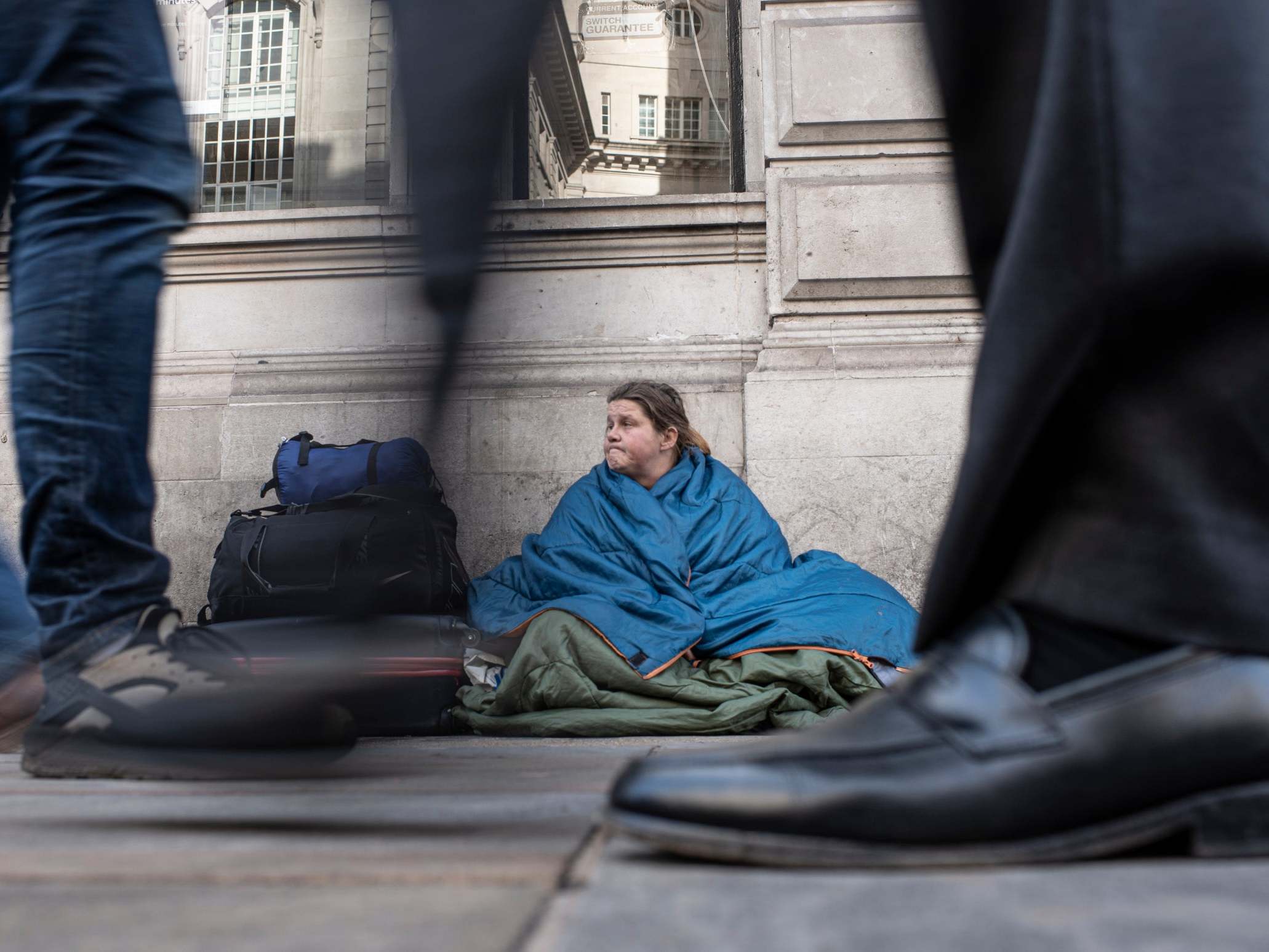Homelessness among ill and disabled people rises 53% in a year, figures show
Campaigners warn councils increasingly unable to fulfil legal duty due to a lack of resources – as well as benefit changes, rent hikes and nationwide shortage of social housing

The number of ill and disabled people becoming homeless has surged by 53 per cent as local councils are increasingly unable to provide them with support, new figures show.
According to government data, councils across the UK reported a 14 per cent rise in households which have at least one resident classed as suffering physical ill health or disability presenting as homeless - from 8,370 between April and June 2018 to 9,510 in the same period of this year.
And the number of sick and disabled people whose local council have been unable to help prevent or relieve their homelessness under the Homelessness Reduction Act (HRA) - and which are now are classed as priority need for housing - has surged from 580 to 890.
The HRA was implemented in April 2018 and placed new duties on housing authorities to intervene earlier to prevent or relieve homelessness.
But campaigners said councils were too often unable to fulfil this duty due to a lack of resources, as well as benefit changes, rent increases and the nationwide shortage of social housing.
The figures show that overall, the number of households found in priority need for housing – meaning they are vulnerable due to reasons such as ill health or disability, pregnancy or being under the threat of violence – has risen by 16 per cent.
Jon Sparkes, chief executive of Crisis, called for an increase in council funding to support vulnerable homeless people, saying: “This steep increase shows not only the scale of people requiring help, but the challenges that people already face, on top of having no place to call home.
“But councils have to be given the resources and ability to exercise this to its full potential and we need to see transformative measures taken, such as restoring housing benefit levels to cover the cost of true rent and an increase in social housing being built, or we risk seeing these numbers to continue to rise.”
Communities Secretary Rt Hon Robert Jenrick MP said: “We have a moral imperative to act to reduce homelessness. One homeless person is one too many and this government is taking action to protect those most at risk. Last year the number of homeless people sleeping rough fell by 2 percent.
The Stats: Homelessness in the UK
Show all 10“More people are getting the support they need to start rebuilding their lives – backed by £1.2bn in funding to reduce all forms of homelessness and rough sleeping, the duty we’ve placed on councils to provide vital help to those who need it, and our commitment to building the homes this country needs
“But there is more we can do - which is why we committed in our manifesto to more integrated working of local health and housing services and the renewal of the affordable homes programme, helping prevent people from falling into homelessness.”
Subscribe to Independent Premium to bookmark this article
Want to bookmark your favourite articles and stories to read or reference later? Start your Independent Premium subscription today.

Join our commenting forum
Join thought-provoking conversations, follow other Independent readers and see their replies